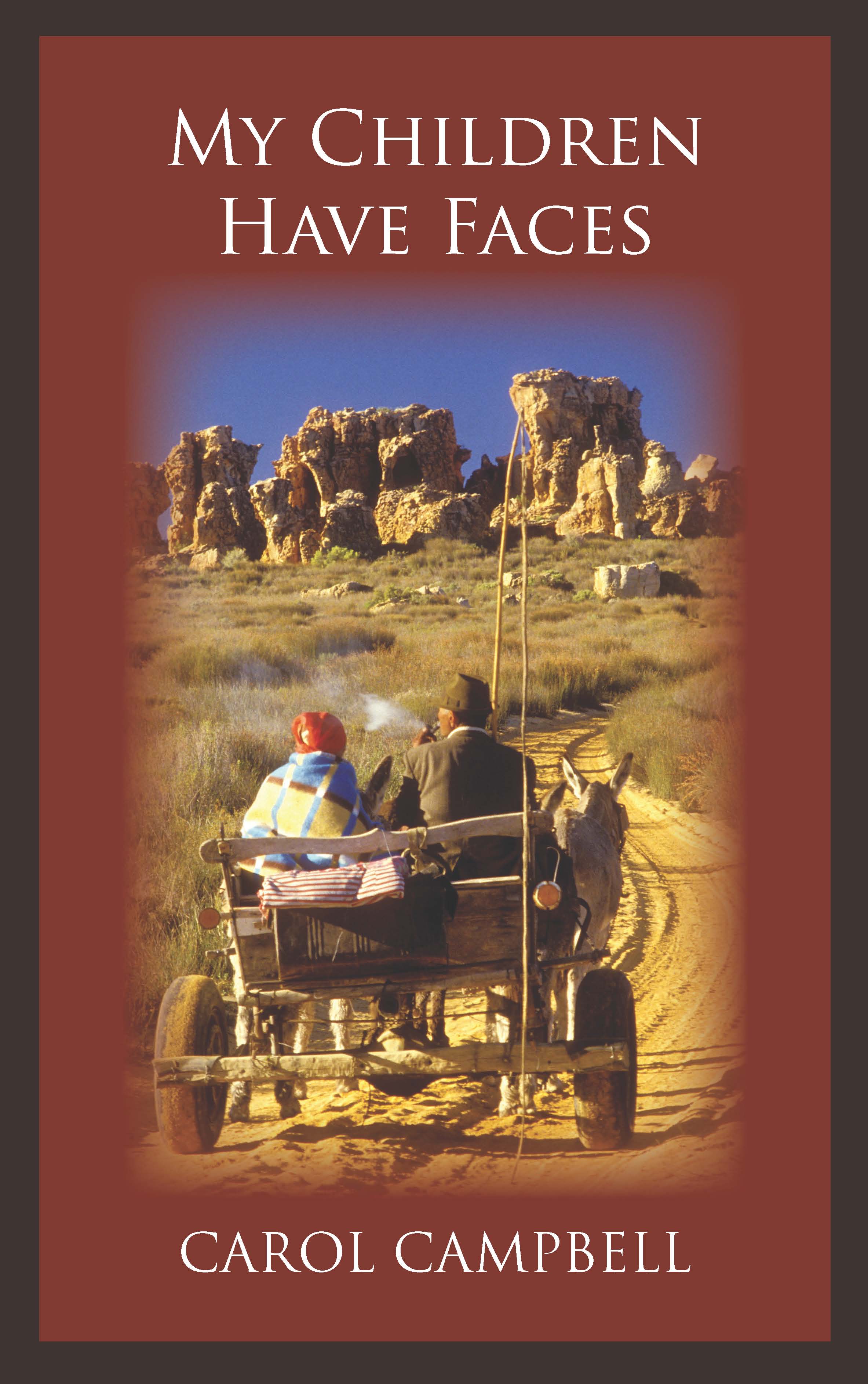“There is violence and neglect, thieving and cruelty, but the story is told with such humanity that we root for this wild, abject family. The dénouement is unforgettable.” — The Sunday Times
“The voices took hold of me from the beginning and then never let go.” — Mike Nicol, author of Agents of the State

142 pages, $15.95 list
1-4786-3501-0
978-1-4786-3501-7
© 2013
paperback
eBook availability
My Children Have Faces
This well-wrought story is drawn from Campbell’s firsthand knowledge of the karretjiemense (donkey cart people) of the Great Karoo, a vast area of parched earth and craggy mountains in South Africa.
Through the voices of Kapok and Muis, the parents, and Fansie and Witpop, the two oldest children, we come to know an undocumented karretjiemense family and their bare-bones lifestyle. Kapok, who tries to find work where he can but uses alcohol to escape reality, is not concerned that the children don’t have government-issued IDs. Muis feels differently: “Without government names, who will the police search for if they are lost?” Muis also worries that Kapok’s desire to get his family out of the dry, hot veld and seek stability in the town of Leeu Gamka will get her killed. Miskiet, the man who raped her there 15 years earlier, reveals to readers that he holds a murderous grudge.
The characters’ use of Afrikaans-interspersed English and their personal perceptions of circumstances expose the complexities of an often invisible culture. Vivid descriptions and underlying suspense unleash in readers the desire to absorb every detail of this poignant novel.
Through the voices of Kapok and Muis, the parents, and Fansie and Witpop, the two oldest children, we come to know an undocumented karretjiemense family and their bare-bones lifestyle. Kapok, who tries to find work where he can but uses alcohol to escape reality, is not concerned that the children don’t have government-issued IDs. Muis feels differently: “Without government names, who will the police search for if they are lost?” Muis also worries that Kapok’s desire to get his family out of the dry, hot veld and seek stability in the town of Leeu Gamka will get her killed. Miskiet, the man who raped her there 15 years earlier, reveals to readers that he holds a murderous grudge.
The characters’ use of Afrikaans-interspersed English and their personal perceptions of circumstances expose the complexities of an often invisible culture. Vivid descriptions and underlying suspense unleash in readers the desire to absorb every detail of this poignant novel.
Reactions